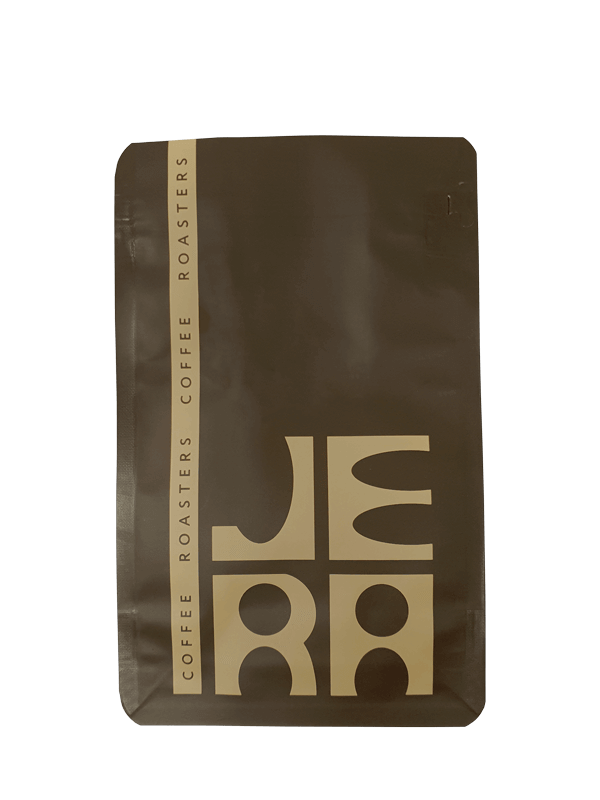קפה קנייתי | Embu region, Wangaki Farm
קפה קנייתי קלוי 
קפה עם גוף סמיך וקצת מחוספס, חמיצות גבוהה הדרית ופירות יער, מתיקות של סירופ מייפל וקרמל. קךייה בהירה, לפילטר.
₪50.00 – ₪200.00
ברכישת כל סוגי קפה קלוי בסכום:
בין 600 ש"ח ל-1000 ש"ח עם קוד קופון "10%" תקבלו 10% הנחה
בין 1001 ש"ח ל-1500 ש"ח עם קוד קופון "20%" תקבלו 20% הנחה
מעל 1501 ש"ח עם קוד קופון "30%" תקבלו 30% הנחה
The farm’s 3 hectares are planted with the traditional SL28 and SL34. ‘SL’ varieties are cultivars originally released by Scott Agricultural Laboratories (SAL) in the 1930s and 1940s. They soon became the go-to trees for many growers in Kenya due to their deep root structure, which allows them to maximize scarce water resources and flourish even without irrigation. They are cultivated with a serious eye to sustainability and Good Agricultural Practices, with minimal environmental impact where possible.
Wangaki is categorized as a ‘small estate’ in Kenya. This sector has, until recently, been frequently overlooked.
Traditionally, many farmers of this size in the country did not own their own processing equipment. They have historically delivered cherry to a centralized cooperative-owned ‘Factory’ (as washing stations are called, locally), where their production is combined with that of others from their region. Francis, however, has his own, small wet-mill where he is able to process his own coffee, ensuring full traceability back to his farm.
Cherry is selectively handpicked and then pulped. Coffee is then fermented for 24 hours in a small tank before being washed in clean water to remove any remaining mucilage. All waste water from the washing process is cleaned to ensure environmental impact is limited.
Parchment is transferred to raised beds where it sundries for approximately 7 days. As it dries, parchment is turned regularly to ensure even drying.
Francis collaborates with a great team of agronomists and field officers at Sucafina/Kahawa Bora to maximize the potential of his small farm. From soil analysis to pruning best practices, he receives expert support in cultivating the best possible coffee and improving his yields.











